The important work of creating an equitable society where all people can thrive cannot be achieved without the support of diverse community-based partnerships. Global Volunteer Month, celebrated in April, is a time to acknowledge and celebrate partners that donate time, resources, and expertise to make a difference in our communities.
Social Current is grateful for its corporate social responsibility partners, which bolster our network’s impact by engaging teams of corporate volunteers and generously donating resources.
Aramark
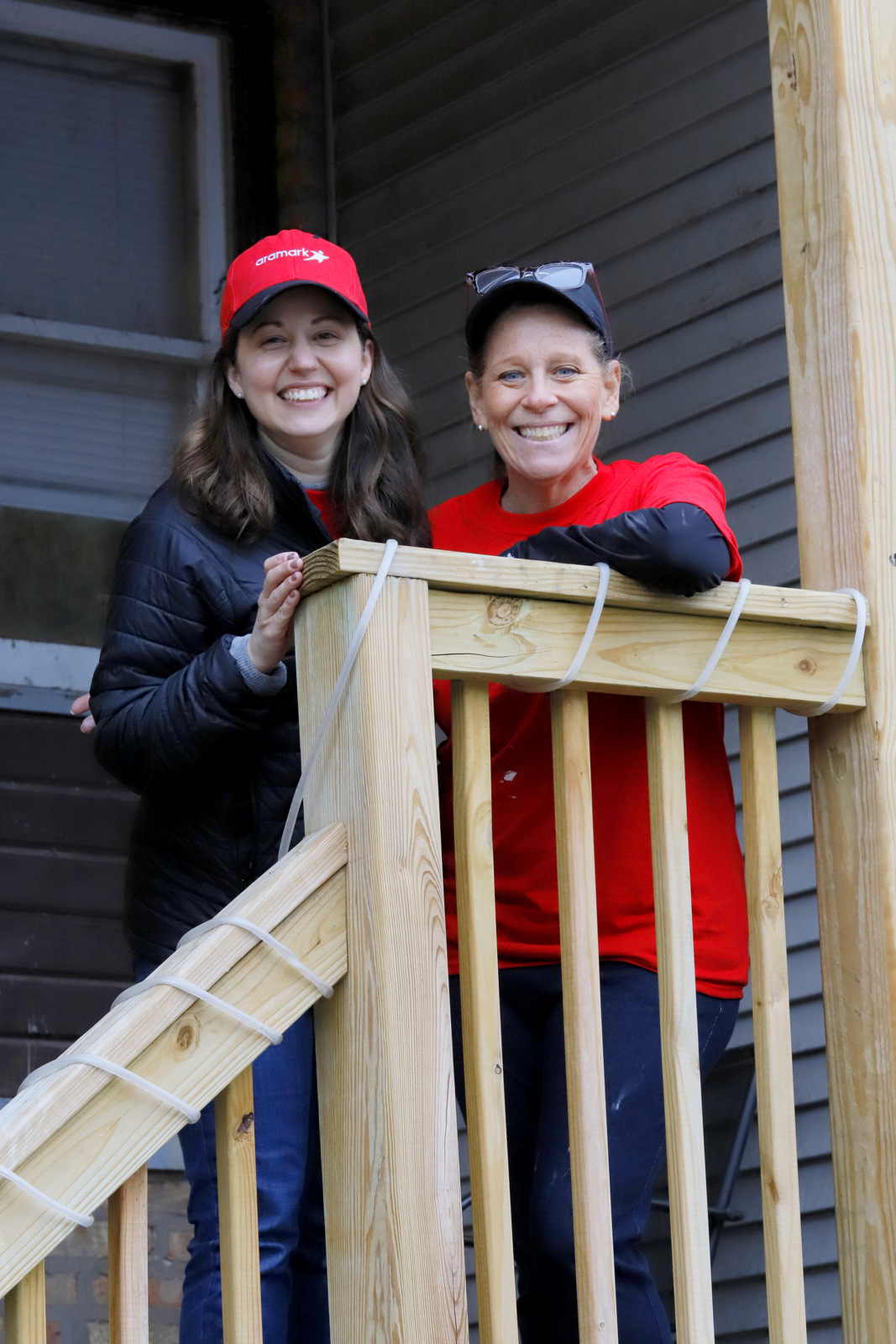
Social Current is grateful for our 17-year partnership with Aramark. Rooted in service and united by purpose, Aramark strives to do great things for its employees, partners, communities, and planet. Their global volunteer program, Aramark Building Community, engages the talents and passions of employees to provide skill development for careers in hospitality, increase access to healthy food, and support sustainable environments. The program builds stronger communities, creates employee volunteer opportunities, and encourages employees to give back to their local communities.
Social Current network organization Southeast Community Services in Indianapolis has benefited from volunteers’ contributions. Aramark employees provide gifts, toys, clothes, and soup kits for the holidays. In addition, volunteers returned April 10 for ABC Day, Aramark’s Global Day of Service, to support 1,000 local children, their families, and outside/unhoused neighbors by assembling kits with snacks and hygiene items. They built new picnic tables, revitalized outdoor areas, and painted the community center’s common areas.
“We deeply appreciate the work of the Aramark employees in supporting our community. The snack packs they put together will be a significant help in feeding our neighbors, and their painting efforts are instrumental in creating a warm and welcoming space for all who come through our doors,” said Peggy Frame, executive director of Southeast Community Services.
Additionally, Chicago-based Social Current network organization Lawrence Hall expressed gratitude for the relationship with Aramark volunteers. Volunteer Coordinator Francesca Valenziano shared, “The entire Lawrence Hall team is incredibly grateful for this continued partnership with Aramark. The amount of volunteerism and projects they have initiated for our campuses, youth, and staff is astounding!”
In December, volunteers coordinated a holiday party, meal, and visit from Santa for Lawrence Hall’s youth and staff in residential care. In addition, Aramark volunteers are participating in a beautification and renovation project at one of Lawrence Hall’s Transitional Living program sites, ensuring the youth and staff have a nurturing and comfortable environment to spend their time.
Bank of America
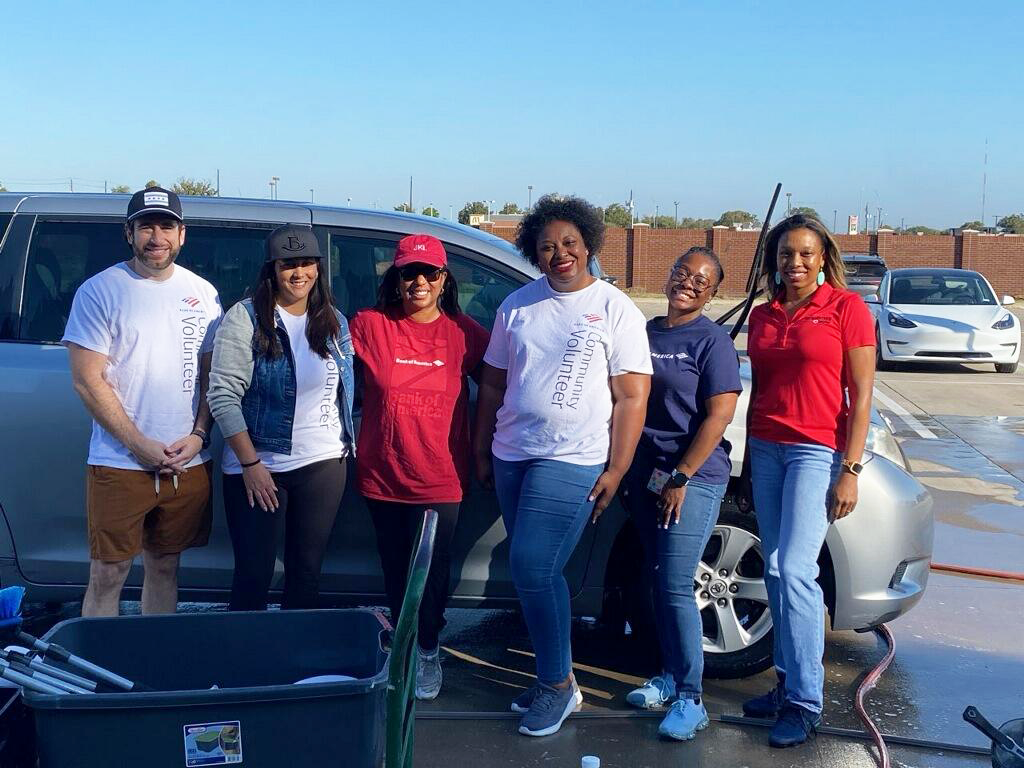
Social Current is in its fifth year of partnering with Bank of America’s Parents and Caregivers Network (PCN). We’ve connected local chapters to Social Current network organizations for engagement opportunities.
Bank of America’s PCN in Fort Worth, Texas, volunteered its time at Social Current network organization ACH Child and Family Services, also in Fort Worth. The volunteers cleaned roughly a dozen vans used to transport homeless, abandoned, runaway and trafficked youth.
“Our kids have been through a lot and being driven in a clean van shows people care,” says Megan Ball, volunteer services manager for ACH. “We so appreciate our Bank of America volunteers who worked hard to teach young people that if you want to be your best, you have to look your best.”
Additionally, the New York PCN donated over 3000 pairs of socks to Villa of Hope in Rochester, New York, and the PCN in Dallas volunteered its time at Social Current network organization Jewish Family Services of Greater Dallas, distributing food to members of the community facing food insecurity. By sorting donations, restocking shelves, and shopping with clients, Bank of America volunteers helped JFS community members maintain a level of dignity and respect, while getting the food they need.
CSC ServiceWorks
Since 2021, Social Current has partnered with CSC ServiceWorks, the leading provider of laundry solutions and air vending services throughout the U.S., Canada, and Europe.
CSC CommunityWorks’ Signature Services program works with community organizations to provide reliable access to clean laundry and basic supports. They believe access to clean laundry is essential to helping people be successful in school and work as well as to maintain healthy lifestyles. CSC teams support their local community-based organizations by providing washer, dryer, air, and vacuum equipment; ongoing service for these machines; and volunteer support. By donating washers, dryers, and ongoing equipment maintenance, CSC helps strengthen the capacity of Social Current partners that are providing essential services.
Since the inception of the partnership, nearly 200 commercial laundry equipment units have been installed across the Social Current network, with more installations to come in 2025, thanks to the time and energy of CSC ServiceWorks volunteers.
Social Current celebrates and thanks all of its corporate volunteers for working in partnership with our network of organizations to create positive impact.
To learn more about Social Current’s corporate partnerships, contact us.
Social Current’s Knowledge and Insights Center recently released an overview of assessing and managing risk for community-based human and social services organizations. Unexpected events, such as disasters, economic downturns, or sudden shifts in public policy, can often cause greater harm to these organizations because they often operate with limited resources, rely heavily on volunteers, and are sustained through government and philanthropic funding.
It is imperative that organizations are proactive and conduct regular risk assessment and mitigation planning to identify financial and operational vulnerabilities and develop plans that can be implemented quickly if adverse situations occur.
Effective risk management is also pivotal to maintaining stability and growth in uncertain times. It encompasses a systematic approach to identifying potential threats and opportunities, evaluating their likelihood and impact, and implementing strategies to moderate adverse effects while maximizing positive outcomes. This spotlight covers:
- Assessment and mitigation
- Financial contingency planning
- Disaster planning
- Tools and assessments
- Discussion questions for your board and leadership team
- Resources for further reading
Download the spotlight on assessing and managing risk online.
Social Current’s Knowledge and Insights Center provides human and social services organizations with the research and information they need to stay current and make informed decisions. In addition to a clearinghouse library, it offers resource collections on key topics, access to specialized databases, and research support from skilled librarians. To gain access, organizations can become a Social Current Impact Partner or purchase access. Contact us to learn more.
Additional Risk Management Resources
- Nonprofit Risk Management Center. Social Current network organizations, including COA accredited organizations and Impact Partners, receive complimentary membership to the Nonprofit Risk Management Center. This includes unlimited risk management support via phone or email, live and on-demand webinars, and discounts on many other templates and tools.
- Marsh McLennan Agency. Social Current Strategic Industry Partner Marsh McLennan Agency offers a dedicated, in-house risk management team that works with clients to uncover root-cause behaviors. With best practices and regulatory awareness at top of mind, they strengthen your organization’s safety and risk control measures.
The nonprofit sector is a vital component of both our economy and society, tackling many of our most urgent challenges. It contributes over 5% to the U.S. gross domestic product (GDP) and employs nearly 10% of the private workforce. This sector not only serves as a significant job creator but also addresses pressing social issues, ensuring that communities thrive. Despite its critical contributions, the nonprofit sector often lacks the recognition and resources necessary to drive systemic change. To illuminate this reality, Social Current, in collaboration with the social impact team behind the film Uncharitable is embarking on a transformative journey to reshape our sector, our vital work, and the narrative surrounding both.
The Power of a New Narrative
Utilizing the powerful narrative of the film Uncharitable, Social Current has launched a new social impact campaign to dismantle the structural barriers that hinder the effectiveness of nonprofits. By positioning itself as a catalyst, convener, and activator, Social Current is fostering a collaborative effort to instigate systemic shifts within the social sector. Central to this initiative is a commitment to amplifying the voices of communities most affected by social challenges. This community-centered approach emphasizes the importance of engaging diverse groups, listening to their needs, and co-creating solutions that reflect their lived experiences.
Key Components
Funding Changes
Traditional funding models often restrict nonprofit’s ability to fund the true cost of program delivery because of the limitations placed on types of expenditures by funders of all kinds. Social Current’s social impact initiative advocates for flexible, long-term funding that allows organizations to innovate and adapt to community needs. For instance, transitioning from one-year project grants to multiyear, unrestricted funding can empower nonprofits to respond effectively to evolving challenges.
Employee Compensation
Nonprofit employees frequently face wage disparities compared to their counterparts in the private sector. Social Current wants to promote compensation practices that recognize the value of the work being done in communities and attract top talent to the sector.
Measuring Impact
Traditional metrics for success often focus on outputs rather than outcomes. Our social impact campaign seeks a more holistic approach to measuring impact, such as evaluating the long-term health outcomes of program participants, rather than just the number of services provided.
Why Now?
The urgency for nonprofit organizations to change the narrative about their work has never been more critical. Here’s why this moment is critical:
Heightened Awareness of Social Issues
Recent events have spotlighted pressing social challenges. As people become more aware of issues like poverty, health care access, and inequality, nonprofits must redefine their continued and important contributions to these conversations and many others.
Increased Demand for Services
Communities are facing a surge in demand for nonprofit services as they cope with ongoing challenges. Now is the time for nonprofits to highlight their importance in addressing these urgent needs and press for improvements.
Shifting Funding Landscapes
With donors and institutional funders increasingly seeking organizations that demonstrate clear impact, nonprofits must change their narrative to focus on measurable outcomes and community engagement to attract funding rather than simply counting.
The Need for Sustainable Practices
As social issues have grown more complex, nonprofits have shifted their focus from short-term fixes to long-term solutions, demonstrating their commitment to sustainable change. These practices are more effective but require a bigger commitment of resources to achieve success.
Empowering Community Voices
Now is an ideal time to amplify the voices of those most affected by social challenges, ensuring that their experiences shape the narrative and solutions. By seizing this moment to change the narrative, nonprofits can enhance their visibility, support, and effectiveness in creating lasting change in their communities.
Conclusion
Social Current’s new social impact campaign represents a pivotal shift in the social sector. By prioritizing community voices, advocating for equitable funding, fair compensation, and meaningful measures of impact, we can dismantle the barriers that have historically constrained nonprofits. Through collaboration, innovation, and a commitment to shared learning, Social Current and our partners are poised to redefine the social sector’s role in fostering community well-being. Together, we can cultivate a future where nonprofits are not only recognized for their contributions but are also empowered to lead the charge in solving the complex social problems that affect us all.
Learn more about the Social Current’s social impact campaign online.
We are accepting applications for the initiative’s pilot communities. The deadline to apply is March 31.
Social Current has partnered with the Center for Creative Leadership (CCL) to offer new trainings on a variety of leadership development topics. A live virtual training on leading change will be held May 20 and Sept. 4, and three on-demand trainings will be available later this year. The on-demand trainings will address:
- Innovation leadership
- Avoiding burnout and building resilience
- Managing virtual and hybrid teams
CCL is a premier leadership development organization that creates courses for leaders at all levels, as well as assessments and leadership development tools.
CCL helps to expand human potential by developing the mindsets, capacity, and capabilities needed to excel in an ever-changing world. With an emphasis on the power of people, backed by research, and fueled by a focus on innovation, CCL is trusted globally to deliver transformational leadership solutions that cultivate positive change.
Social Current has chosen to partner with CCL because of its:
- Leadership Experts: As pioneers of the industry, it is seen as the gold standard when it comes to leadership development.
- Research Foundations: All offerings are based on 50+ years of research.
- Pioneering, Hands-On Development: Its unique, transformational learning experiences meet people where they are.
- Purpose-Driven: It is a mission-based organization, with a belief in the powerful potential of leadership to benefit society.
- Trusted Providers: Leadership is CCL’s sole focus.
“Social Current is excited to partner with the Center for Creative Leadership to bring high-quality leadership training opportunities to our network and the sector,” says Robena Spangler, senior director of leadership development and organizational development. “Our organizations are aligned in our mission and vision to address pressing organizational challenges in support of innovative solutions for public and private sector leaders.”
Over its 50-year history, CCL has more than 1 million alumni from 160 countries and has worked with two-thirds of Fortune 1,000 companies.
Learn more about CCL and Social Current’s Leadership and Organizational Development Impact Area.
Human services professionals are on the frontlines working to support individuals and families across the lifespan with nuance and empathy. That sensitivity and care is critical because the stakes for communities are high—which may also be why some are surprised to hear that artificial intelligence (AI) is being adopted in the human services sector.
Dr. Lauri Goldkind, professor at Fordham University and guest speaker at Social Current’s 2025 CEO Convening, is a social work expert and researcher who has extensively explored AI’s potential to impact human services. Her 2021 article, Social Work and Artificial Intelligence: Into the Matrix, reveals critical considerations for the future of the sector. Learn more from our summary below and access the full text of the article through the Fordham Research Commons.
What Place Does AI Have in Human Services?
The term AI is vague on its own—it’s used to describe several different tools, intended for specific uses, like facial recognition, data analysis, or speech comprehension. Today’s AI tools are not advanced enough to fully replace the work of individual people, rather, AI is a tool that works best when used to enhance—not replace—human expertise.
The implications are huge. This means that professionals and organizations can effect change on a scale not previously possible. As Goldkind articulates in her article, it’s already transformed human services work significantly:
- For Individuals: AI-powered virtual counselors can give mental health support to people who can’t access human therapists. These virtual counselors use facial expressions, body language, and speech to act like humans. Early results show they can help people stay on track with their treatment.
- For Organizations: AI can help social service agencies work smarter. For example, predictive analytics can look at data to figure out which clients need the most help. One food pantry used AI to predict who was at risk of food insecurity, so they could step in before things got worse.
- For Systemic Problems: AI can tackle large-scale issues through data collaboratives—where organizations share data to solve problems. For example, the Chicago Data Collaborative combines data from police, courts, and jails to give a clearer picture of the criminal justice system. This info helps journalists, researchers, and activists push for change.
AI offers a lot of opportunities for the work, but is it too good to be true?
Preventing Potential Harm
While AI has a lot of potential, it also comes with risks. As Goldkind notes, one of the top threats in human services work is individual bias. Even under the best circumstances, professionals may have unconscious biases that affect how they interpret information or make decisions. While AI itself doesn’t have biases, people who create it and the data it uses still reflect real-world inequalities. This naturally raises ethical concerns, especially when AI is used in areas like criminal justice or child welfare.
For this reason, Goldkind believes the best outcomes for AI in these applications start before they are built: “As a values-centered profession with a robust code of ethics, social work is uniquely positioned to engage across disciplines to inform the creation of thoughtful algorithmically enhanced policy and practice at all levels.” Collaboration between tech and human services then becomes a critical symbiosis—providing long-term support to workers and protecting the needs of vulnerable communities.
Read the full-text article online.
CEOs: Learn More From Dr. Goldkind
At this point AI’s place in the industry is cemented, it has filled significant gaps in the system and provides speedy results to cumbersome work—there is no going back. Yet we are only at the beginning of AI’s widespread implementation.
Familiarity with AI is necessary to remain competitive and relevant in today’s work, and future leaders will be expected to understand it well. That’s why we’re excited to have Dr. Goldkind as a guest speaker at Social Current’s 2025 Convening for Chief Executives, where human services CEOs will learn from peers and other experts about the latest innovations in the field. Register now to join us March 19-20 in Charlotte, North Carolina.
Executives and Senior-Level Managers: Learn More at the Executive Leadership Institute
Social Current’s 2025 Executive Leadership Institute, held in partnership with Loyola University Chicago’s Quinlan School of Business, provides foundational leadership training and addresses hot topics, including AI in human services.
Learn more about this year’s program, which includes a weeklong event June 8-12 in Chicago, as well as a year of virtual learning, mentoring, and support with self-designed projects that address organizational challenges.
As the social sector enters 2025, it faces an evolving landscape of both tremendous opportunities and significant challenges. Emerging technologies, particularly artificial intelligence (AI), offer the potential to transform organizations by driving productivity and efficiency. However, these advancements also bring important considerations around responsible deployment and risk management.
To help leaders navigate this shift, Social Current’s Knowledge and Insights Center has curated a report on key trends shaping the sector in 2025, offering actionable strategies to stay ahead. From leveraging AI to managing its ethical implications, this article explores how the social sector can harness technology while staying grounded in its human-centered mission.
Social Current is committed to fostering collaboration among sector leaders to address systemic challenges and seize new opportunities. At our Convening for Chief Executives in North Carolina, March 19-21, we’ll discuss strategies for integrating emerging technologies into the sector.
Lauri Goldkind, professor at Fordham University, will lead an interactive session to co-create an AI readiness assessment rubric, a practical tool to help organizations prepare for AI implementation. Goldkind’s research focuses on data justice, AI in nonprofit management, and telemental health. The session will provide leaders with actionable insights on integrating AI responsibly into human services, ensuring its positive impact while minimizing risks.
Leveraging AI
Social sector organizations are using AI to automate routine functions, gain organizational insights, and increase productivity.
Adoption of AI is surging. A recent McKinsey & Company study reveals that 72% of surveyed organizations are using AI to support at least one business function. In the social sector, organizations report using AI to assist with tasks such as writing personalized donor thank you notes, crafting newsletters, drafting grant proposals, and developing press releases. Across all sectors, AI is commonly used to support IT, HR, marketing, sales, and product/service development functions. Considering staffing shortages, nonprofit organizations can use AI to automate manual tasks in order to free up space for staff to focus on more complex tasks such as problem solving and relationship-building.
Risk Management
While capitalizing on innovative technologies, nonprofits must remain human-centered and mitigate risks such as algorithmic bias, cybersecurity risks, and privacy risks.
Even with its many benefits, AI adoption should be approached strategically and with a healthy dose of risk modeling and mitigation. Take the time to teach your teams how AI works and to understand the body of data that your AI tools train on. Generative AI programs are generally trained on open-source information like Wikipedia, Twitter, and Reddit that can contain heavily biased views and can exacerbate algorithmic bias and disparate outcomes. Some conversational AI tools, such as the free versions of ChatGPT, have time delays and train on data with a currency lag of up to two years, which can cause issues for fields that need highly current information. Additionally, data privacy and cybersecurity concerns should be top of mind for nonprofit professionals using AI.
If you haven’t already, begin drafting AI use-case policies for your workplace that protect user data. 2025 is a great time to identify how to ethically and effectively optimize AI at your organization.
Social Current is Here to Help Navigate Changes
As the social sector continues to adapt to the evolving landscape, the responsible integration of AI offers both significant opportunities and challenges. By adopting a strategic, human-centered approach to AI, organizations can unlock productivity gains while safeguarding against risks such as bias, privacy concerns, and cybersecurity threats. At Social Current, we are committed to supporting leaders in navigating this complex terrain.
In addition to our Convening for Chief Executives, we invite leaders to join us at the 2025 Executive Leadership Institute (ELI). Held in partnership with Loyola University Chicago Quinlan School of Business, ELI helps participants enhance their leadership skills and gain valuable insights into emerging trends in technology and organizational development. These programs are opportunities for learning, collaboration, and strategic planning to help ensure AI and other innovations are used ethically and effectively in the social sector.
Nonprofit leaders face challenges at some point, regardless of their field. Changes in policies, funding, or the needs of the organization can happen suddenly. During uncertain times, staff and community members look to their leaders for support, guidance, and reassurance that they can overcome these challenges. This is when adaptive leadership skills are needed the most.
What is Adaptive Leadership?
Adaptive leadership consists of skills that help individuals stay focused when there are no clear answers or easy solutions. These leaders are open minded and quick thinkers who respond to change and emerging challenges confidently. Instead of sticking to fixed plans or abandoning plans when conditions change, adaptive leaders remain flexible, incorporate various viewpoints, and try new solutions.
Organizational resilience starts with adaptive leadership. It’s common for changes in policy, economics, technology, and industry innovations to disrupt expectations and require organizations to respond. That’s why leaders across all sectors must be prepared to meet challenges effectively and why we emphasize adaptive leadership skills as part of our annual Executive Leadership Institute.
Putting It Into Action
Principles of adaptive leadership offer a framework for handling complex and difficult situations when clear solutions aren’t present. These principles help leaders and organizations adapt and succeed in changing environments:
- Getting on the balcony means stepping back to gain a broader view of the situation. It involves noticing what’s happening with yourself, your team, your organization, and external factors affecting you.
- Identifying the leadership challenge: To find clarity amid uncertainty, you first need to determine the nature of the challenges you’re facing.
- Experimenting and taking smart risks: Stay open to new ideas and be willing to try different approaches based on the facts you have.
- Empowering others: You don’t have to tackle everything by yourself. Involve your team and share the workload.
- Leveraging conflict: Disagreements and varying perspectives can lead to valuable learning and innovation.
- Anchoring leadership in purpose: In stressful situations, it’s easy to lose focus. Stay grounded in your overall goals to guide your actions.
The principles are interconnected and reinforce one another. For instance, “getting on the balcony” helps you identify the leadership challenge, which can inform your experiments and risk -taking. Empowering others allows more individuals to contribute to the adaptive work, while leveraging conflict can uncover new ideas.
Practices
Alongside these principles, adaptive work involves various practices that can help you succeed:
- Diagnosing the Organization/System: Understand how your organization works and identify areas for improvement.
- Regulating Distress: Manage your emotional responses to difficult situations and maintain your composure.
- Maintaining Disciplined Attention: Focus on the most pressing issues.
- Giving the Work Back to the People: Empower team members to take ownership and find solutions.
- Protecting Voices of Leadership from Below the Hierarchy: Ensure that diverse perspectives are heard, regardless of level within the organization.
Staying Prepared
Practicing adaptive leadership is just as crucial as understanding its principles. When engaged in a difficult situation, stress and time constraints can make it hard to recall this information. The program provides Leaders with continuity of practice and application of adaptive leadership techniques to sharpen their skills. Here are some methods:
- Case Studies: Stay updated on how similar organizations handle unexpected changes. Reviewing these cases can reveal valuable leadership lessons. Done through student cohorts using Social Current’s online learning community.
- Simulations: Run practice scenarios to develop your decision-making skills and identify strengths, weaknesses, and potential outcomes in a less stressful environment. During virtual convenings, students have opportunities to apply adaptive skills to situations experienced across the sector.
- Role-playing: Engaging in role-play helps you practice communication and manage tough conversations. Group exercises support experiential learning while reinforcing the importance of feedback.
- Personal Reflection: Think about how you’ve responded to unexpected changes in the past. Reflecting on your experiences can help identify areas for improvement and effective strategies to apply. Self-awareness is essential to leadership development
Executive Leadership Institute
Adaptive leadership is a core component of Social Current’s Executive Leadership Institute (ELI), which is held in partnership with Loyola University Chicago’s Quinlan School of Business. Over the course of the program, leaders grow their knowledge and skills to effectively manage day-to-day operations and prepare for future challenges and changes.
Executives and senior managers learn how to lead more effectively in an ever-changing environment through a combination of academic instruction, real-world projects, mentorship. This year’s institute will be taking place June 8-12 in Chicago. Learn more about the institute online and register to join us at our informational session.
Further Reading:
- The Practice of Adaptive Leadership: Tools and Tactics for Changing Your Organization and the World
- Leading with Resilience: Mastering the Art of Adaptive Leadership in the Modern World
- Thomas Huber, PhD MS ECS
The mentorship program offered as part of Social Current’s Executive Leadership Institute (ELI) plays a pivotal role in developing transformative leaders. By pairing seasoned leaders with emerging talent, ELI creates a unique, supportive environment where knowledge sharing, personal growth, and professional development converge.

For this article, we asked an ELI mentor pair to share their experiences and shed light on the significant impact of their relationship on the broader leadership learning process. Mentor Kevin Walsh is a retired executive with 43 years of experience in child welfare, mental health, and juvenile justice in New York State, and mentee Althea Birch is the director of community programs at The Advocate Program in Miami.
Complementing On-Site Learning Through Mentorship
For many ELI students, the week of onsite learning is the foundation of their leadership journey. However, it is the mentoring component that provides the essential bridge to real-world application. According to Walsh, the in-person experience and additional virtual learning are crucial for providing a theoretical framework on leadership, but the program’s true value emerges when participants are encouraged to translate these lessons into action.
“While the onsite sessions provide critical insights into the challenges facing leadership today, working with a mentor allows the mentee to apply these concepts to real situations within their own organization,” Walsh explains. For example, Birch embarked on a project to expand her organization’s board of directors to include a member with lived experience. With Walsh’s guidance, this goal became not just a theoretical exercise, but a transformative action which reshaped Birch’s organization.
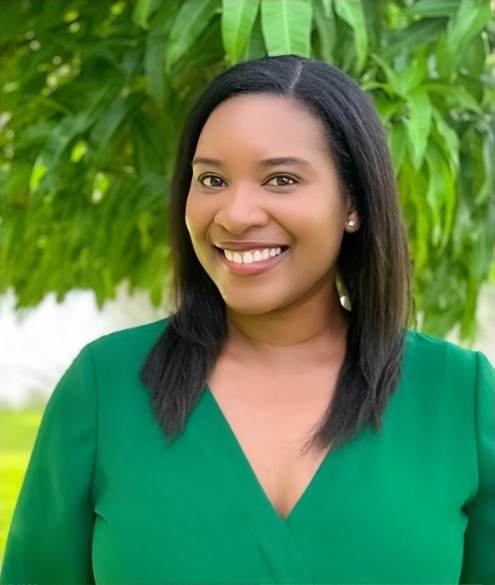
The focus on action-based learning is what sets ELI apart. Each student works on a project that requires them to implement the skills and insights they’ve gained, with their mentor acting as a neutral, experienced guide. “The mentor’s role is to help the mentee reflect on the challenges they face, not to solve the problem for them,” explains Walsh. This reflective process, which is central to adult learning, allows the mentee to deepen their leadership practice and approach issues from new perspectives.
Mentorship as a Personal Development Journey
Mentorship within ELI is not just about professional growth; it is deeply intertwined with personal development. The mentor shares their expertise and helps the mentee work through their leadership challenges. As Walsh highlights, “Mentoring is about guiding the mentee on a personal journey toward becoming a stronger leader.” This means fostering a space where mentees can think critically, voice their concerns, and reflect on their growth.
For the mentees, the experience is equally impactful. “Kevin was an unbiased sounding board,” says Birch, reflecting on the mentorship experience. “His guidance helped me make better leadership decisions.” The mentor-mentee dynamic offered Birch a chance to step back and analyze her leadership style, without the pressures of a supervisor-employee relationship. This created a safe space for reflection and growth.
Benefits to Both Mentor and Mentee
While mentorship is primarily focused on supporting the mentee’s development, mentors also benefit significantly from the experience. For Walsh, the chance to work with mentees has kept him engaged and connected to the evolving trends in the nonprofit sector. “I am constantly learning from my mentees,” Walsh shares. “Working with individuals facing different challenges keeps me sharp and connected to the changing landscape of leadership.”
For the mentee, the benefits are clear: Continuous support, expert guidance, and an opportunity to learn from someone who has walked the path before. “Kevin’s nonprofit leadership experience gave me a wealth of guidance,” Birch shares. “He helped me understand that even small accomplishments matter in leadership, and he gave me the encouragement to keep moving forward.”
Overcoming Challenges Together
Like any relationship, the mentor-mentee partnership can face challenges. Walsh reflects on early struggles with understanding the fine line between coaching and mentoring. “It was difficult at first to resist the urge to offer advice on how to solve problems,” he admits. “But the true role of a mentor is to help the mentee reflect, not provide direct solutions.” With practice and support from other mentors in ELI’s alumni community, Walsh honed his active listening skills, ensuring that he could better guide Birch’s self-reflection.
For Birch, challenges were minimal, but the consistency of open communication was key. “Kevin was always available and supportive,” she explains. “Even between our scheduled meetings, I knew I could reach out if I needed guidance.”
A Lasting Impact
Perhaps the most powerful aspect of the ELI mentorship program and the institute overall is the longevity of relationships with peers and advisors in the sector. The connections formed during the program do not end when students graduate from the institute. As Birch shares, “I know I can continue to reach out to Kevin throughout my leadership journey.” This enduring support is what makes ELI’s mentoring approach unique — it is not just about guiding participants during the course, but about establishing a lasting partnership for continued growth.
Learn More About the Executive Leadership Institute
The mentor-mentee relationships forged through ELI are more than just professional connections—they are partnerships that nurture personal growth, challenge assumptions, and develop leadership skills. These relationships provide a critical complement to the in-person and virtual learning experience, offering mentees the chance to apply new concepts in real-world settings while growing as leaders.
View details online for the 2025 Executive Leadership Institute, to be held June 8-12 at Loyola University Chicago.
To learn more about how you can develop your leadership skills and make a lasting impact, join our free informational webinar about the institute Feb. 20.
Social Current’s Knowledge and Insights Center is now offering access to the Next Big Idea Club. This virtual book club, curated by bestselling authors Malcolm Gladwell, Adam Grant, Susan Cain, and Daniel Pink, delivers the most important nonfiction books of the year. Through our online forum, you can dive deep into impactful ideas with 45-minute audio and video lessons. These lessons distill the essence of groundbreaking books, offering you a comprehensive understanding in a fraction of the time.
Social Current’s access includes highlights from the Next Big Idea Club’s collection of books, with a particular emphasis on:
- Workplace relationships
- Workforce resilience
- Improved communication and interpersonal connection
- Authentic approaches to diversity, equity, inclusion, and belonging
In this forum, featuring lessons from the books below, you’ll learn strategies and techniques that improve relationships with coworkers, clients, community members, and partners, in addition to your personal relationships away from work.
- High Conflict: Why We Get Trapped in Conflict and How We Get Out by Amanda Ripley
- Uncensored: My Life and Uncomfortable Conversations at the Intersection of Black and White America by Zachary Wood
- You’re Not Listening: What You’re Missing and Why It Matters by Kate Muphy
- No Hard Feelings: The Secret Power of Embracing Emotions at Work by Liz Fosslien and Mollie West Duffy
Access to the Next Big Idea Club is an exclusive benefit for Social Current Impact Partners.
Learn more about the benefits of becoming an Impact Partner online and by joining an upcoming informational webinar.
How to Access
Go to Next Big Idea Club: Better Relationships In and Out of the Workplace.
Social Current Impact Partners can access these lessons for free by logging into the hub. Log in to your existing account or create one if you are a new user. Once logged in, check out the resources list and click on the individual records to view.
Learn more about the Social Current Knowledge and Insights Center.
The important work of creating an equitable society where all people can thrive cannot be achieved without the support of diverse community-based partnerships. Global Volunteer Month, celebrated in April, provides a great opportunity to acknowledge and celebrate partners that donate time, resources, and expertise to make a difference in our communities.
Social Current is grateful for its corporate social responsibility partners, which bolster our network’s impact by engaging teams of corporate volunteers and generously donating resources.
Aramark
Social Current is grateful for our 16-year partnership with Aramark. Rooted in service and united by purpose, Aramark strives to do great things for its employees, partners, communities, and planet. Their global volunteer program, Aramark Building Community, engages the talents and passions of employees to develop solutions that address challenges caused by lack of access to healthy food and proper nutrition, financial insecurity, and inequitable environments. The program drives stronger communities, creates employee volunteer opportunities, and encourages employees to give back to their local communities.
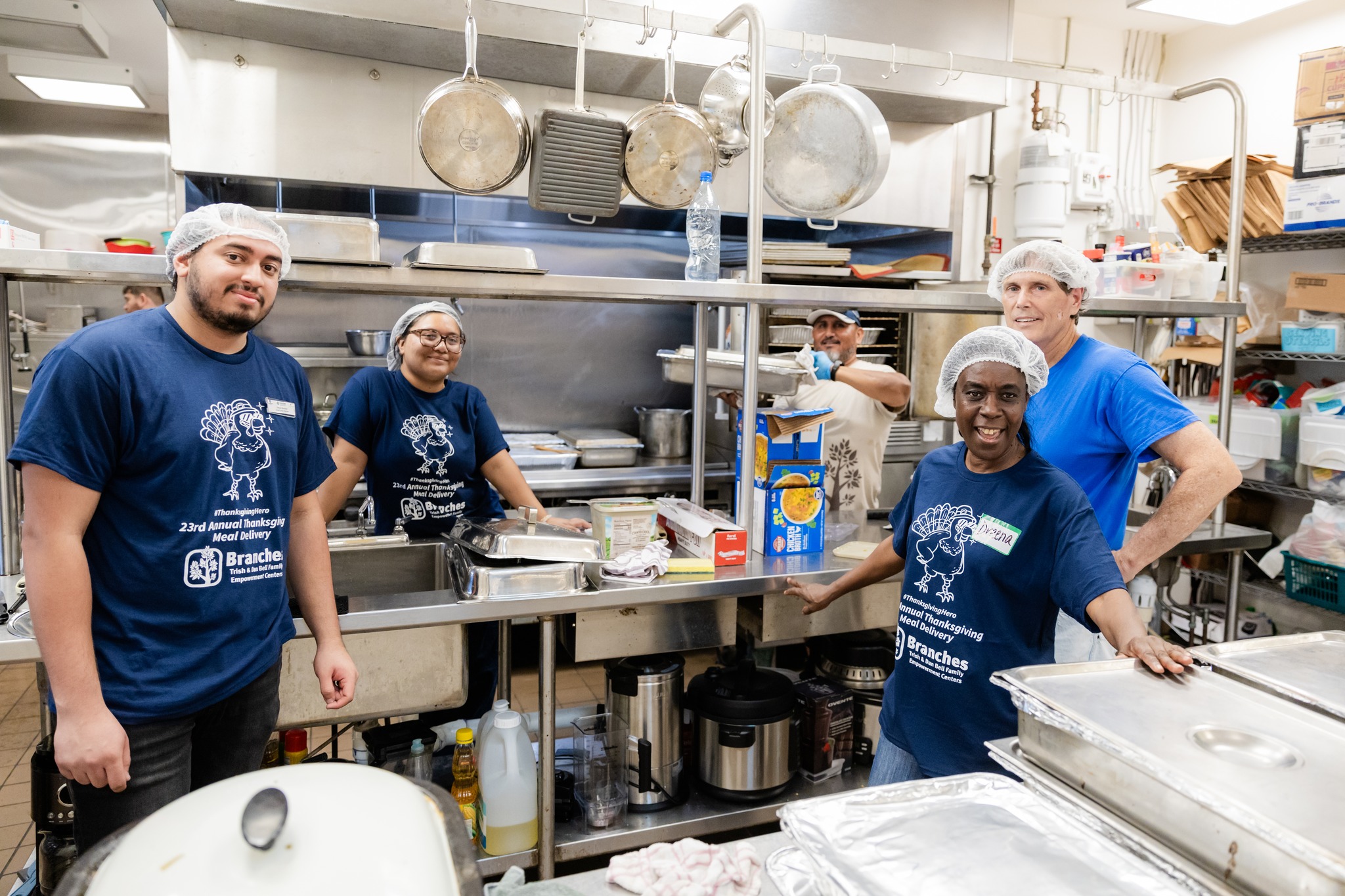 The Aramark Building Community grant program and team of engaged volunteers have been an incredible support for Social Current partner Branches in Miami, especially over the holidays. Aramark volunteers cooked, packaged, and delivered meals over Thanksgiving, while also purchasing and wrapping gifts for college students during the holidays.
The Aramark Building Community grant program and team of engaged volunteers have been an incredible support for Social Current partner Branches in Miami, especially over the holidays. Aramark volunteers cooked, packaged, and delivered meals over Thanksgiving, while also purchasing and wrapping gifts for college students during the holidays.
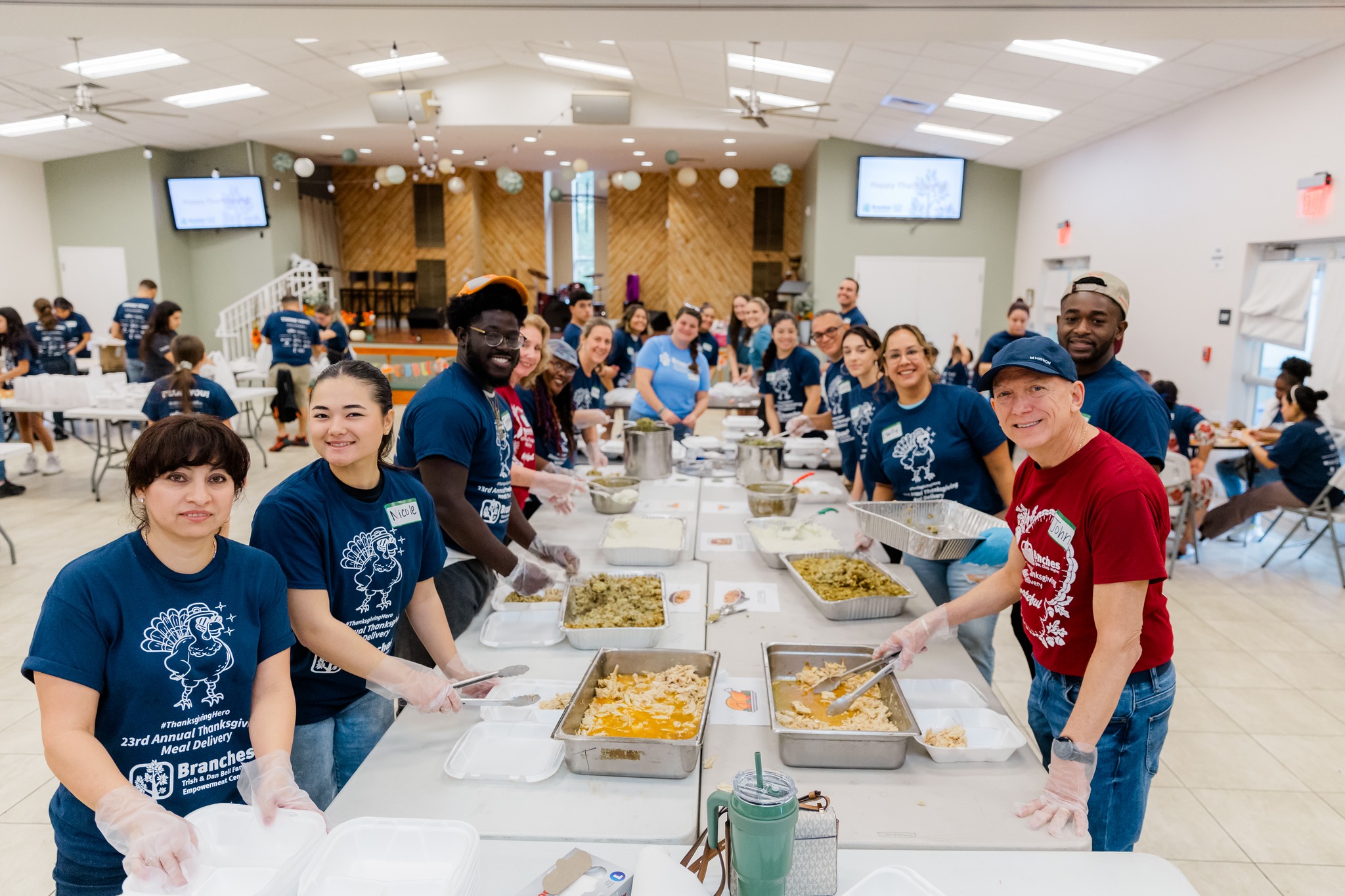 “We are continually grateful for the service-minded spirit of Aramark volunteers,” said Sarah Pattinson, associate director of development at Branches. “They come ready to serve the community and to tackle any project we present them with. They serve with joy and are always willing to go above and beyond for others.”
“We are continually grateful for the service-minded spirit of Aramark volunteers,” said Sarah Pattinson, associate director of development at Branches. “They come ready to serve the community and to tackle any project we present them with. They serve with joy and are always willing to go above and beyond for others.”
CSC ServiceWorks
Since 2021, Social Current has partnered with CSC ServiceWorks, the leading provider of laundry solutions and air vending services throughout the U.S., Canada, and Europe.
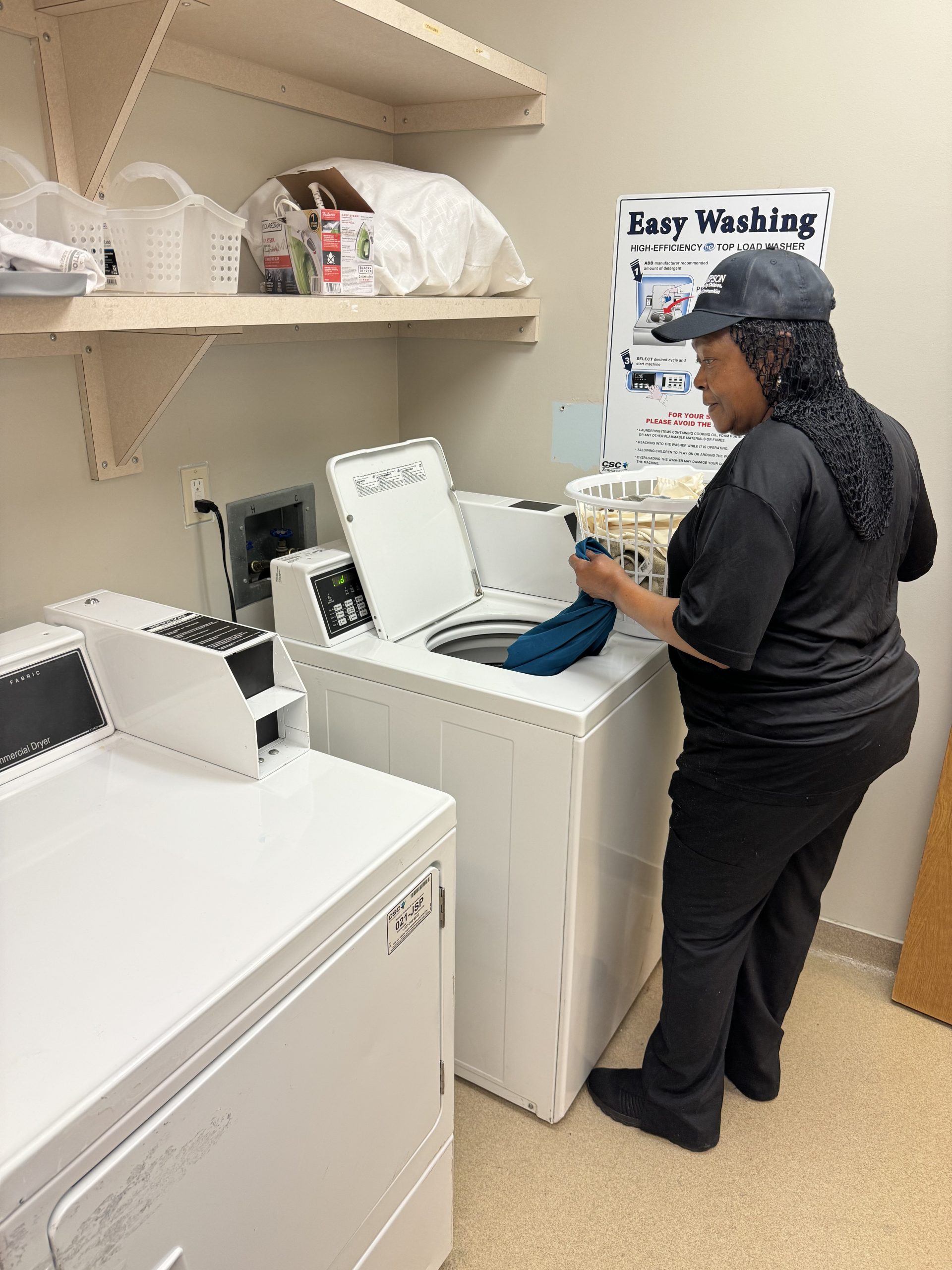 CSC CommunityWorks’ Signature Services program works with community organizations to provide reliable access to clean laundry and basic supports. They believe access to clean laundry is essential to helping people be successful in school and work as well as to maintain healthy lifestyles. CSC teams support their local community-based organizations by providing washer, dryer, air, and vacuum equipment; ongoing service for these machines; and volunteer support. Through their donations of washers, dryers, and ongoing equipment maintenance, CSC helps strengthen the capacity of Social Current partners who are providing essential services.
CSC CommunityWorks’ Signature Services program works with community organizations to provide reliable access to clean laundry and basic supports. They believe access to clean laundry is essential to helping people be successful in school and work as well as to maintain healthy lifestyles. CSC teams support their local community-based organizations by providing washer, dryer, air, and vacuum equipment; ongoing service for these machines; and volunteer support. Through their donations of washers, dryers, and ongoing equipment maintenance, CSC helps strengthen the capacity of Social Current partners who are providing essential services.
“The equipment [provided by CSC ServiceWorks] has allowed us to keep our laundry done in a timely fashion because our machines stay in operation,” said Danny Whitley, chief facilities officer at Thompson Child and Family Focus in Matthews, North Carolina. “We are 24/7 facility, and laundry is crucial to our care.”
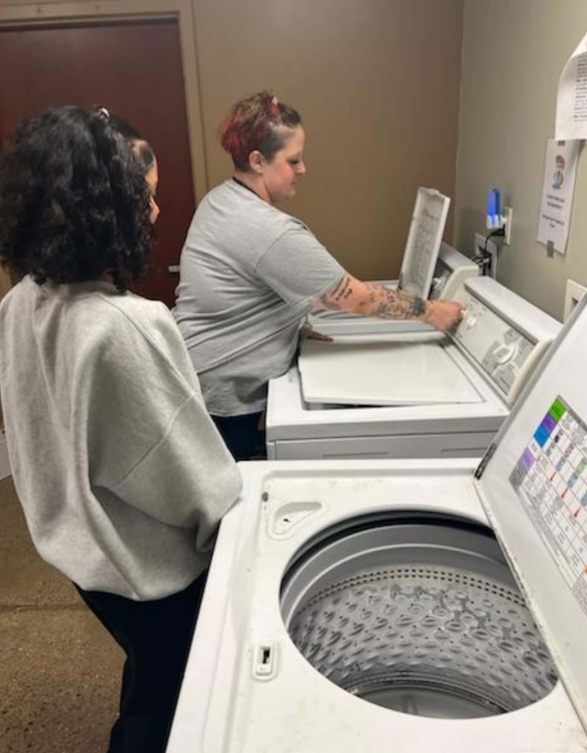 Rodney Prystash, director of facilities/operations at Auberle in McKeesport, Pennsylvania, shared, “The six high-quality washer and dryer units provided by CSC ServiceWorks have really helped meet the need for families residing at our homeless family shelters, and for the young women and men at our semi-independent living programs. The donated equipment and volunteer installations have allowed us to use resources for other critical items for those that we serve.”
Rodney Prystash, director of facilities/operations at Auberle in McKeesport, Pennsylvania, shared, “The six high-quality washer and dryer units provided by CSC ServiceWorks have really helped meet the need for families residing at our homeless family shelters, and for the young women and men at our semi-independent living programs. The donated equipment and volunteer installations have allowed us to use resources for other critical items for those that we serve.”
Social Current celebrates and thanks all of its corporate volunteers, working in partnership with our network of organizations and helping us implement equitable solutions to society’s toughest challenges. For questions about Social Current’s corporate partnerships, please contact Emily Merritt, senior manager of corporate partnerships.
